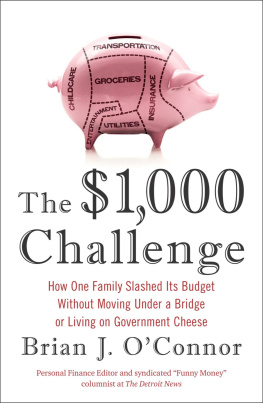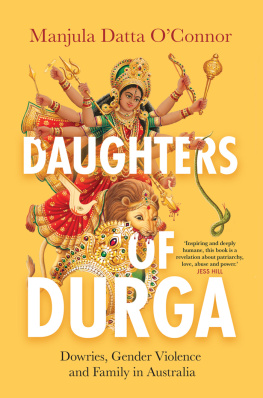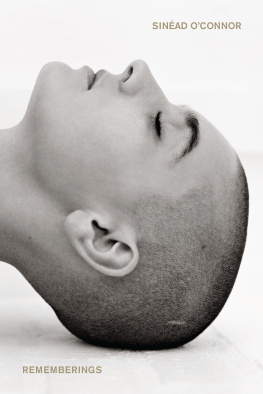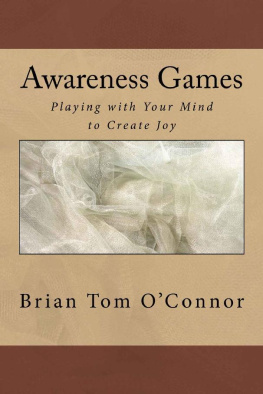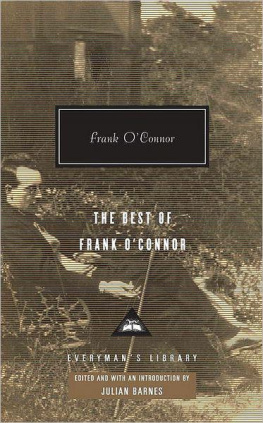Who says deep digging into personal finance has to be drudgery? Brian OConnor, aka Mr. Funny Money, mines invaluable gold nuggets on his own personal financial experiment and leaves you smarter, empowered, and laughing all the way. Teri Gault, founder and CEO of TheGroceryGame.com
OConnor can make negotiating a lower bill with his cable company funny. This book made me laugh and cancel my unused gym membership. Jennifer Reese, author of Make the Bread, Buy the Butter
Whoever said you cant cut your way to prosperity has never read Brian J. OConnor. Squeeze out all the wasteful spending in your household budget and you may find youre richer than you think. This book will help you recover even if the economy around you does not. Al Lewis, columnist, MarketWatch and The Wall Street Journal Sunday
If the Funny Money family can find a way to save $1,000 in the middle of job furloughs, hefty special ed expenses for Lil Money all the while helping Grandpa with his medical bills, you can, too. Mr. Funny Money, Brian OConnor, reveals in his typical riotous style simple how-tos for getting it done. Join in the Funny Money familys adventure and youll find yourself packing your emergency savings account faster than you could run from his recipe for roasted raccoons. The $1,000 Challenge is a must-read no matter how dire your financial predicament. Julie Bandy, editor-in-chief of Bankrate.com
Far too much personal finance writing tastes like medicine. Brians financial advice goes down smoothly, with a generous coating of humor that helps a serious money message and a lot of practical tips slide right through. Along the way, he punctures the oft-peddled notion that paring back is easily done by trimming back a few luxuries (take that, latte police!). Saving money and trimming a budget is hard but doable work, but its made easier with Brians well-thought-out tips. Daniel P. Ray, editor-in-chief of CreditCards.com
PORTFOLIO / PENGUIN
THE $1,000 CHALLENGE
Brian J. OConnor is a syndicated columnist for The Detroit News. For his Grand Experiment series he was honored with a 2010 Best in Business award from the Society of American Business Editors and Writers and the Christopher J. Welles Memorial Prize, awarded by the Columbia University Graduate School of Journalism. He lives outside Detroit with his wife and son.
PORTFOLIO / PENGUIN
Published by the Penguin Group
Penguin Group (USA) LLC
375 Hudson Street
New York, New York 10014

USA | Canada | UK | Ireland | Australia | New Zealand | India | South Africa | China
penguin.com
A Penguin Random House Company
First published by Portfolio / Penguin, a member of Penguin Group (USA) LLC, 2013
Copyright 2013 by Brian J. OConnor
Penguin supports copyright. Copyright fuels creativity, encourages diverse voices, promotes free speech, and creates a vibrant culture. Thank you for buying an authorized edition of this book and for complying with copyright laws by not reproducing, scanning, or distributing any part of it in any form without permission. You are supporting writers and allowing Penguin to continue to publish books for every reader.
Portions of this book appeared in a different form as a series of articles by the author titled The Grand Experiment in The Detroit News. Published by arrangement with The Detroit News. Copyright The Detroit News Inc.
LIBRARY OF CONGRESS CATALOGING-IN-PUBLICATION DATA
OConnor, Brian J., 1959
The $1,000 challenge : how one family slashed its budget without moving under a bridge or living on government cheese / Brian J. OConnor.
pages cm
Summary: A funny, useful guide to saving $1,000 a month, based on the popular series in The Detroit News. With middle-class families more stretched than ever, nationally syndicated personal finance columnist Brian OConnor decided to test his own advice about saving money. He began a ten-week experiment to cut his familys monthly expenses by $1,000without sacrificing anything truly important. The result is a funny, savvy guide to budgeting in the real world, across ten different categories of spending. It can help families eliminate petty squabbling about money and feel better about where those hard-earned dollars are going Provided by publisher.
ISBN 978-1-101-62753-2 (eBook)
1. Budgets, Personal. 2. Finance, Personal. 3. Frugality. 4. Home economicsAccounting. 5. Consumer education. I. Title. II. Title: One thousand dollar challenge.
HG179.O266 2013
332.024dc23
2013023196
This publication is designed to provide accurate and authoritative information in regard to the subject matter covered. It is sold with the understanding that the publisher is not engaged in rendering legal, accounting, or other professional services. If you require legal advice or other expert assistance, you should seek the services of a competent professional.
To Jodi, Casey, and Mom
CONTENTS
INTRODUCTION
The Great Recessepression
How to Use This Very Handy and Enlightening Book, Even If You Dont Happen to Be a Chicken-Dancing Polish Farm Worker
Pop Quiz: How did you spend September 20?
A. Cleaning and restuffing your feathered suit for National Chicken Dance Day.
B. Marking the Feast of Zywie, the Polish goddess of longevity, by not dying.
C. Marking National Farm Safety Day, also by not dying (only counts if you work on a farm).
D. Celebrating Constitution Week by refusing to quarter foreign soldiers in your home (unless theyre really, really cute, in which case, hey, go for it).
I f you did any of these things, you somehow managed to overlook the anniversary of VR DayVictory over Recession. It was precisely on September 20, 2010, that the economic eggheads in charge of deciding such things declared that the worst financial downturn since the Great Depression had officially ended more than a year earlier. Some call it the Great Recession, since it was much worse than other downturns weve been through, while others label it the Lesser Depression. I say split the difference and lets call it the Great Recessepression.
Whatever we call it, marking the end of such economic wretchedness is normally the kind of auspicious occasion that would make me want to throw on a sailor suit, run to Times Square, and kiss a nurse. But not this year. The National Bureau of Economic Review may have declared the recession over years ago, but for many Americans, its still going strong. And, much like watching the broadcast of the Oscars, it feels like its going to last for the rest of our lives.
More than four years after the official end of the recession, more than twelve million Americans remained unemployed in the first quarter of 2013, with 40 percent of them out of work for more than six months. A third of homeowners owe more on their mortgages than their homes are worth. Real wages have fallen for the past several decades, and pay has continued to decline since the end of the recession. Credit is harder to get, student loan debt has ballooned to become a crisis, and retirees are entering their golden years with bank accounts paying nearly 0 percent interest and with nest eggs that gained little, if anything, between 2000 and 2012. Seniors owe more on their credit cards, baby boomers have seen their incomes drop by nearly 10 percent since the end of 2009, and the net worth of anyone younger than forty is either flat or lower than it was for people the same age in 1983.

